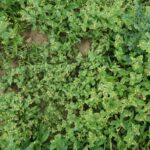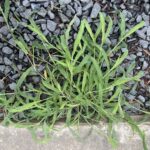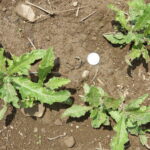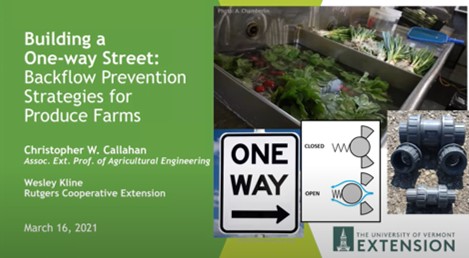We continue to see the need for resources focusing on farm worker training and sanitizers. We invited to produce safety experts to discuss the topics on recorded webinars. These recordings are now available for viewing on the Rutgers NJAES YouTube Produce Safety playlist.
Retraining and Upskilling Workers on Produce Safety Best Practices by Phillip Tocco, MSU Extension
Using Sanitizers in a Postharvest Setting: Selecting a Sanitizer and Understanding Its Label by Donna Clements, Produce Safety Alliance
Additional information can be found on the Rutgers On-Farm Food Safety website, including upcoming FSMA PSR trainings, USDA third-party audit workshops, and future webinars.





